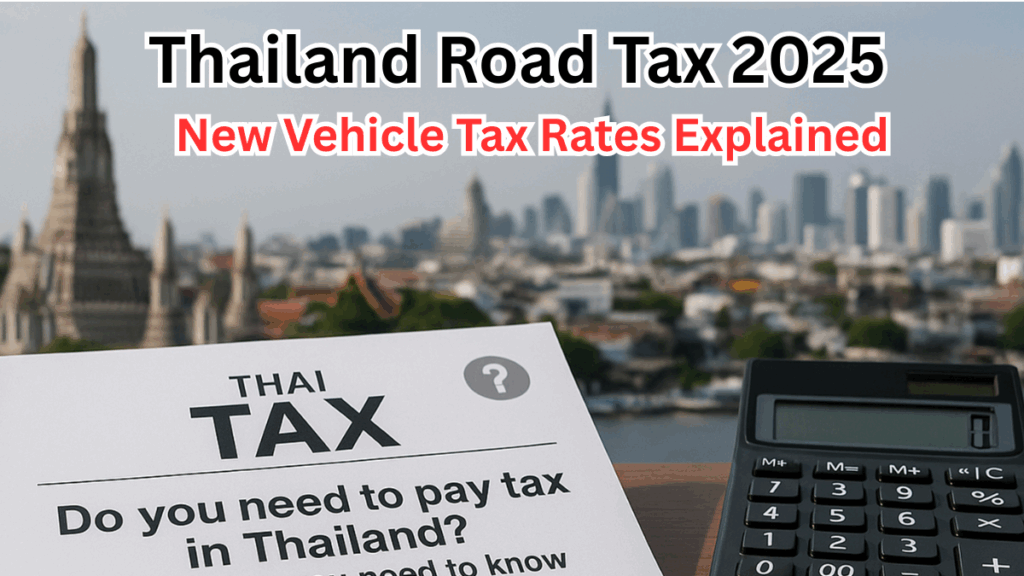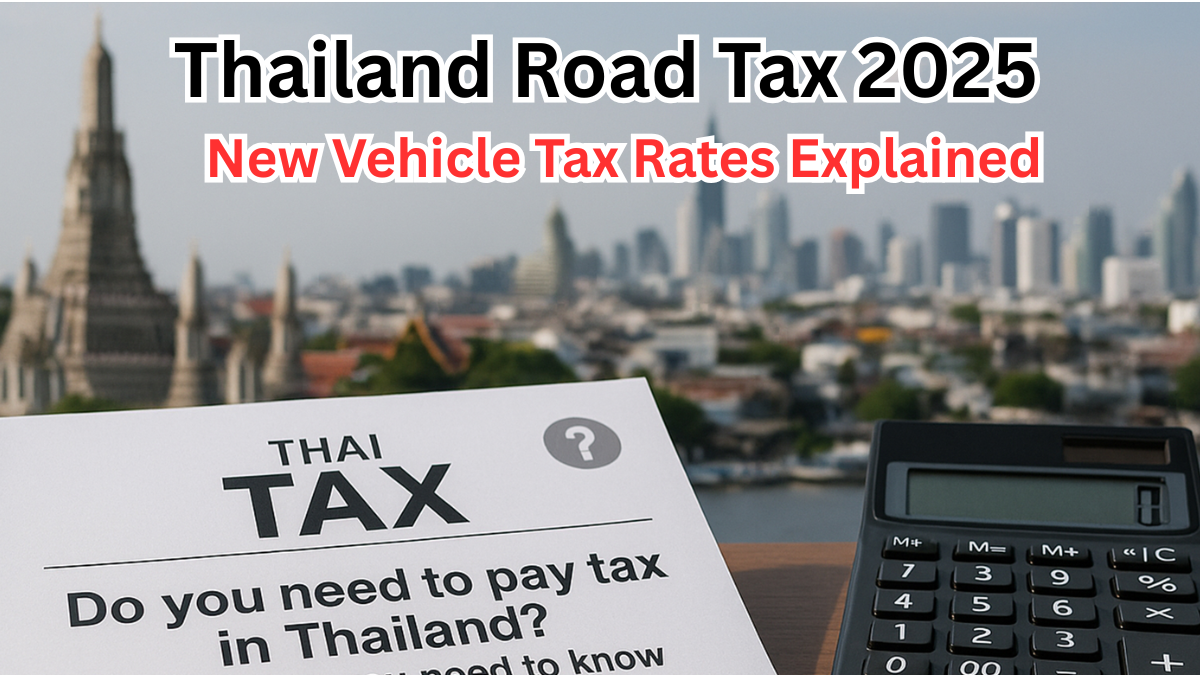Navigating Thailand’s road tax system can be a challenge, especially with the evolving landscape of electric vehicle (EV) incentives. Whether you’re a first-time car owner or an EV enthusiast, understanding the current tax rates and benefits is crucial. This guide breaks down the key aspects of the Road Tax Thailand 2025, including new vehicle tax rates and Thailand EV incentives 2025.

Road Tax Thailand 2025: What You Need to Know
Thailand’s road tax system is designed to promote eco-friendly vehicles while ensuring fair taxation. Here’s an overview of the current structure:
Standard Road Tax Rates
| Vehicle Type | Tax Rate (THB) |
|---|---|
| Private Cars | Varies by engine size and weight |
| Motorcycles | Fixed annual fee |
| Commercial Vehicles | Based on weight and usage |
Note: Specific rates can vary. It’s advisable to consult the Department of Land Transport for precise figures.
Thailand EV Incentives 2025
To encourage the adoption of electric vehicles, the Thai government offers several incentives:
-
Excise Tax Reduction: For Battery Electric Vehicles (BEVs), the excise tax has been reduced to 0% for locally assembled models with a retail price under THB 2 million and a battery capacity of at least 50 kWh.
-
Subsidies: A subsidy of THB 100,000 is available for qualifying BEV pick-up trucks and motorcycles.
-
Excise Tax on EV Batteries: The excise tax on EV batteries has been reduced from 8% to 1% to support local manufacturing.
These incentives aim to make EVs more accessible and promote sustainable transportation.
New Vehicle Tax Rates Explained
Understanding the new vehicle tax rates is essential for budgeting and compliance. Here’s a breakdown:
BEV Pick-Up Trucks and E-Motorcycles
| Criteria | Excise Tax Rate |
|---|---|
| Retail Price ≤ THB 2 million | 0% (2024–2025) |
| Retail Price > THB 2 million | 2% (2026 onward) |
| Battery Capacity ≥ 50 kWh | Eligible for THB 100,000 subsidy |
Note: These rates apply to locally assembled vehicles.
Plug-in Hybrid Electric Vehicles (PHEVs)
| Electric Range | Excise Tax Rate |
|---|---|
| ≥ 80 km | 5% (from 2026) |
| < 80 km | 10% |
This structure encourages longer electric-only driving ranges.
How to Pay Your Road Tax in Thailand
Paying your road tax is a straightforward process:
-
Prepare Required Documents: Ensure you have your vehicle registration book, compulsory insurance (Por Ror Bor), and inspection certificate if applicable.
-
Visit the Department of Land Transport: You can pay your tax at the local office or authorized inspection centers.
-
Online Payment: Some regions offer online payment options for added convenience.
-
Display Tax Sticker: Once paid, affix the tax sticker on your vehicle as required.
Regular payment ensures compliance and helps avoid penalties.
FAQs
1. What is the excise tax rate for electric vehicles in Thailand?
For Battery Electric Vehicles (BEVs), the excise tax is 0% for locally assembled models with a retail price under THB 2 million and a battery capacity of at least 50 kWh. From 2026 onward, the rate will be 2% for BEVs exceeding THB 2 million.
2. Are there any subsidies available for electric vehicles?
Yes, qualifying BEV pick-up trucks and motorcycles are eligible for a subsidy of THB 100,000.
3. How is the road tax calculated for private cars?
The road tax for private cars is based on factors such as engine size, weight, and emissions. Specific rates can vary, so it’s best to consult the Department of Land Transport for accurate information.
4. Can I pay my road tax online?
Yes, some regions in Thailand offer online payment options for road tax. Check with your local Department of Land Transport office for availability.
Click here to learn more
